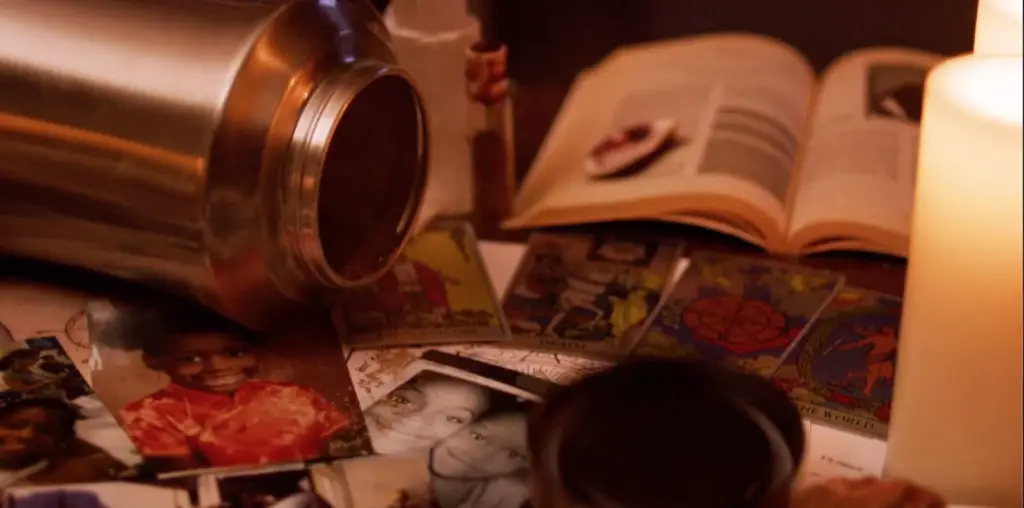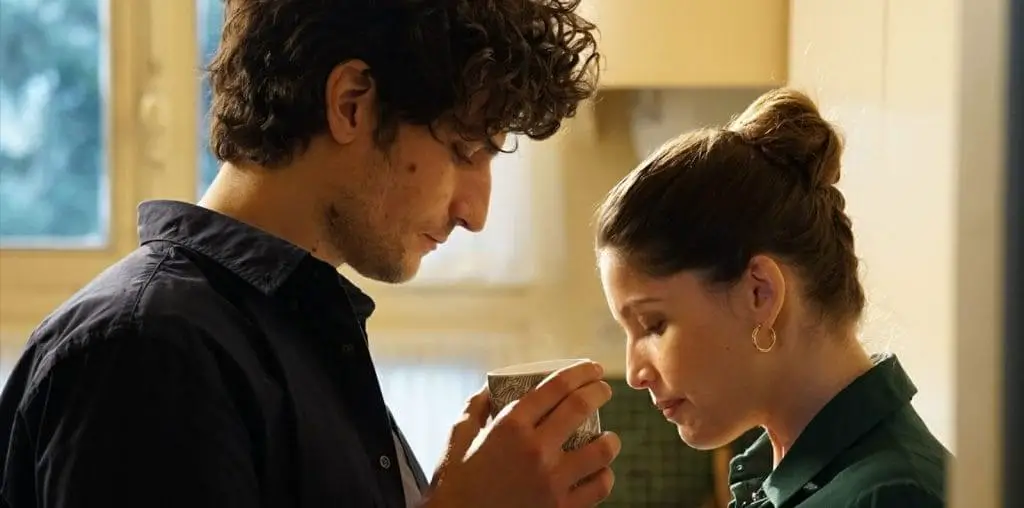
Monterey Media’s recent distribution of “I am Comic” is a find for all fans of comedy and independent films. This behind the scenes glimpse at stand-up life is fascinating, disturbing—and as riveting, raw and hilarious as it gets. I caught up with the always honest, always funny director, Jordan Brady, to talk about his newest creation…
I’m detecting a slight accent that I can’t quite place. Where are you from?
I was born in a small town in Ohio but grew up in Virginia.
How did stand-up lead to filmmaking?
It all began when I was eight years old and used to come home after school and watch Flip Wilson and Steve Martin. That’s when I knew I wanted to be a comedian. There was a comedy boom that began to swell when I dropped out of school. I became a stand-up when I was 17.
What happened next?
I hosted a short-lived game show called “Turn it Up” on MTV. Then there was a kids’ show called, “Name Your Adventure” where kids would send letters requesting that we use situations like “queen for a day.” At that time I thought, I don’t want to just show up and host this program. I want a real job! So I began directing these comedic pieces, which led to making independent films.
Tell us about your films…
I made the first one about ten years ago. It was called “Dill Scallion.” The film had a nice little run on the festival circuit and that led to other directing assignments. After that, I began directing commercials, but all the while kept alive my love of stand-up comedy, which I performed on Saturday nights at the worst bar ever, in the valley of LA.
Worst in terms of audience or location?
No, the audience was great, but the bar was way off the beaten path. On top of that, there was no stage for comedy and there was always some cage fight being televised next door.
How did you concentrate and keep the audience’s attention?
Well you have to address these situations and move on. When I first performed, the management shut the little curtain and I think they turned down [the noise] a decibel.
Are all your independent films comedy-based?
One of them is different. It’s a dramatic comedy that’s definitely darker than the others. It stars Jena Malone and Brad Renfro and is called, “Confessions of an American Girl.” I’m obviously an unknown and obscure director and “Confessions” is the least known of any of my films.
As a comedian, did you like the darkness?
I did like the dark humor. There’s also incest and a homosexual seduction of a young boy by a prisoner. I enjoy fusing the humor with something dark and taboo—with a little bit of suspense. I can’t say I succeeded with this film, however. We made it on a shoestring budget of a few hundred thousand, and I don’t know how compelling the story actually is. Still, I loved the performance and had a great time with the actors.
Which film is your favorite?
That would be “Dill Scallion,” because it has music and a large cast. I also love “I am Comic” because it’s so truly an independent film! What interests me is the journey that the “main character” Ritch Shydner takes, as he tries to return to stand-up comedy and how this parallels the journey of independent film itself. The “character” makes this odyssey not because he will then get a pilot from CBS, or a holding deal from Carcy/Warner to develop a sit-com, but because it means something to him personally—and he wants to do this.
Did you ever make a film with more mainstream actors?
I made a film called “Waking Up in Reno” with Charlize Theron, Billy Bob Thornton, Patrick Swayze and Natasha Richardson. That was for Miramax Films. I don’t know what Miramax’s record is for comedy, but what I found most difficult was people meddling with the work.
Exactly. I write my own material, and that’s my greatest fear when others supply the money. Tell us about the commercials.
I told myself I’d commit three years to making commercials but that turned into eight.
Were they mainstream commercials?
Yes, mainstream and national. I made commercials for companies like Kia and McDonalds. I did a lot of funny kids’ stuff associated with the Happy Meals. When “Shrek IV” came out, I did a big campaign for McDonalds.
Are you in any of the commercials?
I’ve been in a few, which is nice because you get paid twice, but mainly I prefer to direct them.
Good money?
It’s great money! Plus you work with filmmakers at the top of their game and you come together for what amounts to one or four at the most, day shoots. There’s no attitude or drama. It’s all about the best work you can make. I tell people outside of filmmaking, Imagine, if you mounted an army of love where everyone really enjoys what they’re doing. I love making commercials and it suits my ADD. All you have to do is focus on 30 seconds and you have one or two days to shoot. The art is to come up with an even better idea than the one you’re given. The craft is to do this with the very latest tools. It’s amazing!
I think of commercials as mini-films.
Sure, but different! Every shot must convey information, as opposed to a movie, where you’re holding back information. In a commercial, every cut has a punch—and every frame, a little something in it, or it’s a waste.
Do you have final cut?
No, that’s up to the agencies, but I do try to edit every commercial myself. I have a series running for the Avery Labels people who had their own editor. I sat with the editor for two days before anyone else came in from the company and finalized the edit based upon their client’s wishes. The result was some funny stuff!
How can comedians be funny when so many are serious offstage.
When someone tries to be funny we’ll never laugh. Hopefully, in “I am Comic” a balance is struck. For me, the film had to be funny or it would have died. It had to be funny enough to make people laugh, in spite of the dark theme of addiction.
What is it about 94-year-old Phyllis Diller that still holds our interest and makes us laugh—the classic comedian?
She has that magic—the “it factor” that everyone’s looking for. It’s that natural quality mixed with her ability to stay relevant. I saw Mort Sahl recently and he drew in a crowd similar to his age [83].
It all boils down to timing, improv and that personal touch.
I couldn’t agree more. There’s a comedian named Wayne Federman who I’ve put in all my films, including this one. He just plays himself—this quirky Jewish guy. If I ask him to do something in a commercial that’s deadly serious, it’s easy for him. If you ask an actor to be funny, he’ll fail. When the actor ad libs too many times it’s exposition— The film-actor will say, “OK, I see that you’re on the couch.” The comedian will say, “You know, you really ought to wash these cushions. They smell like cat.”
Right! How much do looks matter with the up-and-coming female comics?
I think it’s less important these days. I share the theory that the prettier the woman, the harder it is to get her audience to listen to her humor. I find Sarah Silverman very attractive. If you notice, she seems to go out of her way to shock you with her potty mouth. Still, she’s a very clever writer and very funny. There’s a young comedian named Natasha Leggero who makes a big deal of fashion. She wears gloves and has that Jackie O look. But I think for the most part [beauty] is less important as long as the material is there.
One thing that bugs me is when minority comedians pull the religious or race card.
I think it’s a springboard for the joke because there’s a popular stereotype. If I’m black and tell a joke about being black, it plays off this stereotype that the audience collectively agrees is a stereotype. When Silverman plays the Jewish card she already has the audience on the same page.
But when if ever, does this seeming crutch, stop?
I don’t have an answer. I think the goal of every comedian and filmmaker is authenticity. The more you can stay true to yourself, the funnier [and more profound] you will be. Your material will resonate with the audience—as for example, Jeff Foxworthy’s work.
Is their much theft among comedians?
Stealing material happens but it’s not common. Everyone says Carlos Mencia steals material, and in “I am Comic” he admits this. Still people love his personality and don’t really care about the material. For the most part, there is a pride and code of ethics among comedians. You write your own material, you’re usually poor, work hard and perform alone. That’s a stand-up!


Thanks for the nice comments, Erin and Richard! “I am Comic” is a fascinating behind-the- scenes look at the real lives of comedians. At the same time, Brady intertwines Ritch Shydner’s efforts to return to a profession that’s constantly changing. The result is a really unique historical/experimental film that’s definitely worth owning. Right now, I’m watching two of Jordan Brady’s earlier films. He’s a very interesting guy!
Awesome interview,… I guess I’ll have to take a look at this movie.
great interview and i love the movie!